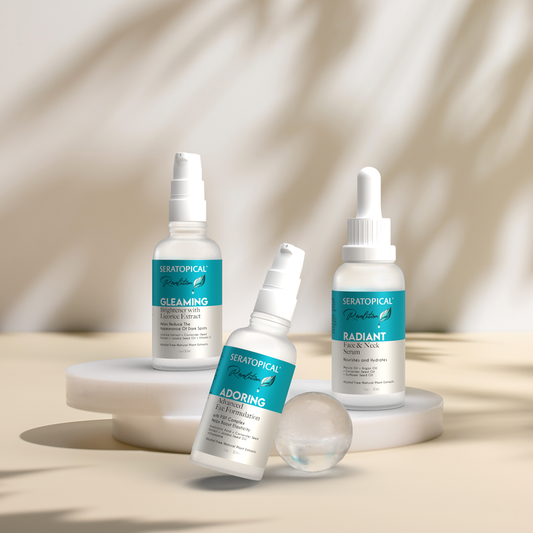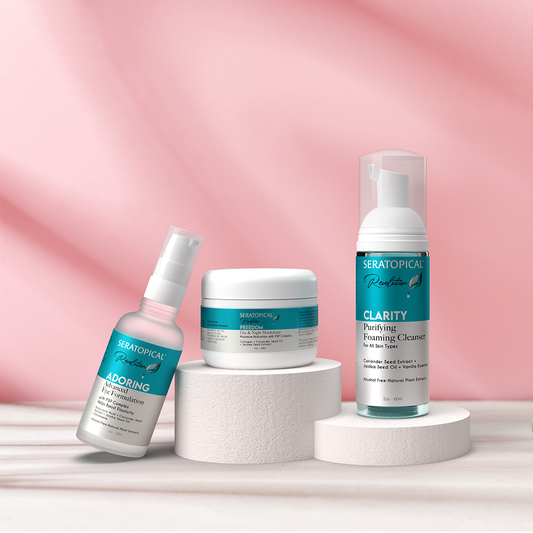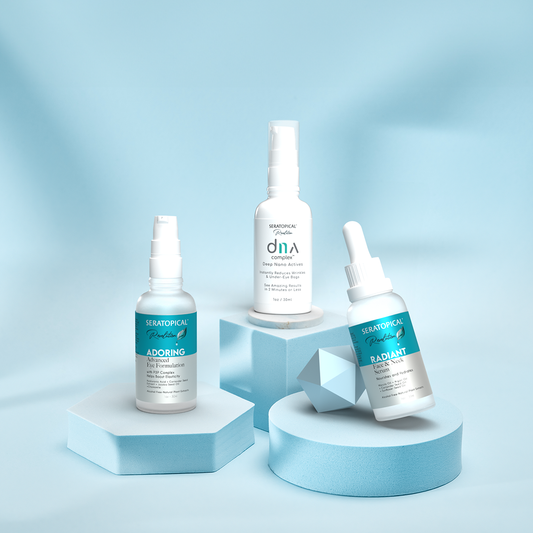As the days get shorter and the nights get longer, the temperature outside gets steadily lower. The winter season is here and with it, some nasty viruses like colds and flu. Some of us don't seem to get sick often, while others seem to have to weather the flu every single year. While natural immunity is a real thing, everyone gets sick sometimes so there are a few things you can do that may keep your immune system strong through the winter months.
How a Weak Immune System Affects the Body
A weakened immune system can have profound effects on the body's ability to defend itself against pathogens and maintain overall health. The immune system serves as the body's defense mechanism, identifying and neutralizing harmful invaders such as bacteria, viruses, and fungi. When the immune system is compromised, either due to genetic factors, medical conditions, or external influences, its ability to mount an effective response diminishes. This leaves the body vulnerable to infections and diseases that a healthy immune system would typically fend off. Individuals with a weakened immune system may experience recurrent illnesses, prolonged recovery times, and an increased susceptibility to opportunistic infections.
Additionally, the body's ability to detect and eliminate abnormal cells, such as cancerous ones, may be compromised, highlighting the critical role a robust immune system plays in maintaining overall well-being.
Things That Can Weaken Your Immune System
Several factors can contribute to the weakening of the immune system, compromising its ability to protect the body effectively. Chronic stress is a significant culprit, as prolonged stress can elevate cortisol levels, negatively impacting immune function. Inadequate sleep and poor nutrition also play pivotal roles, as they are essential for maintaining a robust immune response. Certain medical conditions, such as autoimmune disorders and HIV/AIDS, can directly compromise immune function.
Additionally, age, with the elderly and very young being more vulnerable, and environmental factors like exposure to pollutants and toxins, can weaken the immune system. Moreover, lifestyle choices like excessive alcohol consumption and smoking have been linked to immune suppression. Understanding and addressing these factors are crucial for fostering a resilient immune system and promoting overall health.
Boost Your Immune System Naturally
Diet is one of the most crucial elements for a healthy immune system. Our immune system is what protects us from bacteria and viruses. For optimal immune system functioning, different organs, immune cells, and proteins need to work together. In order for any system in the body to operate at peak performance, it needs to be provided with the right nourishment. This comes down to what we eat. Stay healthy by eating a balanced, vitamin rich diet with whole grains, healthy fats, colorful fruits and lots of root vegetables like sweet potatoes. Good nutrition is so important for the body, especially during cold weather. It is the fuel we use to stay healthy and keep our body and immune system strong. Limit alcohol consumption and specific foods with added sugars and look out for foods that contain natural immune boosting properties like oranges and oily fish. These foods are usually rich in Vitamin C and D.
1. Exercise Regularly
Staying healthy is a combination of many things including a balanced diet and regular exercise. Regular exercise means a minimum of 15-30 minutes a day of some sort of moderate exercise. Examples of physical activity include walking, going on a hike or practicing Pilates or yoga. Exercise is not just good for losing weight. It might also help boost your immune system because it promotes blood flow. This healthy flow stimulates white blood cell production and these white blood cells are what might help protect our bodies from flu viruses and other illnesses. Some sort of regular movement should be part of everyone's daily routine. Many people may find it more difficult to exercise during winter because the cold weather makes us want to cuddle on the couch with a good movie or a book but don't neglect your body just because the weather outside is cold. Your immune system needs you to stay active.
2. Prioritize Your Sleep
Good sleep hygiene is possibly one of the most overlooked parts of our health. How can we expect our immune system to function at its best and fight off illnesses if we do not allow our body the time it needs to recharge and restore itself? In winter, the nights are longer and the days are shorter which means we are primed for a good night's sleep. What is better than cuddling up under the warm covers on a cold winter's night? For most people, getting enough sleep means 8-10 hours per night. Not only do healthy sleep patterns impact our immune system, it may also affect our mental health, body weight and overall health. Ignoring your sleep requirements and running on fumes is a bad idea and may often end up in a weakened immune system and possible health issues.
3. Get Your Flu Shot
While we may be able to boost our immune system naturally with the likes of vitamin C, there is nothing wrong with some pharmaceutical assistance. Most people, especially those with health conditions, may find benefit in seeking out the advice of their healthcare provider and getting the flu shot every year. The reason it might be important to get the new flu shot every year is so that it may protect us against nuisances like the common cold and flu and so that our immune systems are adapted to the newest and different strains year-round.
4. Hydrate!
We all know how important it is to drink water, but do you know why? Water is necessary to carry oxygen to the cells in our body and it also may flush away bacteria and infection. You may help boost your immunity by keeping yourself well-hydrated every day. It might be more difficult to consume water when the weather is cold but here is some good news. The temperature of the water you drink is not important. Try adding some lemon to hot water and drinking your 8 glasses warm. Aim for 8-10 glasses of water per day. It's a good way to add more vitamins (vitamin C) to your water and keep your body warm at the same time.
5. Support Your Immune System with Supplements
Many people take a multi-vitamin to help boost their immune system. Although a well-balanced diet can provide many of the vitamins and minerals our bodies need, supplements may be a good safeguard. While we may not need to add all vitamins to our supplement routine, some vitamins might be more crucial in winter. Because we are exposed to less sunlight in the colder months, we may have less Vitamin D in our system. Vitamin D is necessary for a healthy and well-functioning immune system. Taking a good Vitamin D supplement like ImmunD3 from Nutri-Strips may help protect your immune system. Nutri-Strips provide 40,000 IU of Vitamin D in one strip, and the great thing is you only need 1 strip a week.
6. Keep Your Hands Clean
It’s important to always keep your hands clean, and try not to touch your eyes. There are many related stories about people not maintaining hand hygiene and consequently, contracting some sort of illness. When you step in the door, before you eat and after you have used the bathroom, be sure to wash your hands with soap and water. Many public bathrooms will have signs reminding people to wash their hands and instructing them how for informational purposes.
7. Maintain A Healthy Weight
Having extra weight around the abdominal area may hamper the efficacy of the body's immune system. Recent research shows that obese people who lose a minimum of 10 pounds, may show improvements to an immune system that was off balance prior.
8. ImmunD3 Nutri-strips
Seralabs Nutri-Strips have revolutionized the way we can protect the immune system. ImmunD3 Nutri-strips is a breakthrough in Vitamin D delivery, providing 40,000 IU of Vitamin D – a full week’s worth– in ONE small Nutri-Strip! Get yours here.
9. Eat Your Fruits & Veggies
Eating a variety of fruits and vegetables is a key strategy to boost immunity, particularly during the winter when the risk of colds and flu tends to rise. These foods are rich in vitamins, minerals, and antioxidants that support the immune system. Citrus fruits like oranges, grapefruits, and tangerines are high in vitamin C, known for its immune-boosting properties. Leafy greens such as spinach and kale provide essential nutrients like vitamin K and folate. Incorporating berries, known for their antioxidant content, and vegetables like bell peppers and broccoli, which are rich in vitamins A and C, can contribute to a stronger immune response. By maintaining a colorful and diverse diet of fruits and veggies, individuals can enhance their overall nutritional intake, helping the body fend off infections and stay resilient during the winter months.
10. Manage Your Stress
Boosting immunity naturally involves adopting healthy lifestyle practices that support the body's defense mechanisms. Adequate sleep is crucial, as it allows the immune system to regenerate and function optimally. Regular exercise has been linked to enhanced immune function, promoting overall health. A well-balanced diet rich in fruits, vegetables, whole grains, and lean proteins provides essential nutrients that contribute to a robust immune response. Hydration is key, as water helps flush out toxins and ensures proper functioning of bodily systems. Managing stress through techniques like meditation and yoga is important, as chronic stress can negatively impact immune function.
Additionally, incorporating immune-boosting herbs and spices such as ginger, garlic, and turmeric into meals can provide added support. By adopting these natural practices, individuals can strengthen their immune system and better protect themselves against illnesses.
SOURCES:
- https://www.summithealth.com/health-wellness/boosting-your-winter-immune-system
- https://thethirty.whowhatwear.com/boost-immune-system-for-winter
- https://www.cvmedpro.com/blog/boost-immunity-and-stay-healthy-during-winter-season
- https://www.healthline.com/health/cold-flu/immune-boosting-tips-to-prep-for-winter
- https://www.benenden.co.uk/be-healthy/body/boost-your-winter-immune-system/









